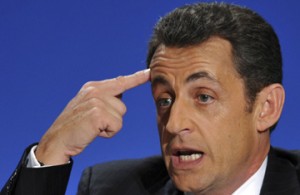I’m periodically asked about proposals to impose “small” taxes on transactions.
There are a couple of versions of this idea. In some cases, such proposals are designed to tax every economic transaction and supposedly generate enough money to replace all other taxes.
In recent years, though, I’m usually asked about levying a “Tobin Tax,” which would be an additional tax imposed on some or all financial transactions. This particular scheme is becoming more of a threat because European politicians such as President Sarkozy of France want to impose the levy.
I’ve always said such plans are unrealistic because anything that collects a big amount of revenue is bound to have negative effects, particularly since much of what occurs in financial markets can easily escape to other jurisdictions. Heck, these taxes are so misguided that even the Obama Administration is opposed to them.
Everyone should reject these taxes. Two professors, one from Stanford and the other from NYU, recently explained why transactions taxes would undermine investment in a column for the Wall Street Journal.
Our research shows unambiguously that higher trading costs depress the prices of stocks and bonds. A transactions tax will end up punishing Main Street, hurting the economy and reducing U.S. Treasury revenues in the next few years. It will thus exacerbate the effects of the financial crisis. We estimate that a 0.25% transaction tax on stocks will lower their average price by about 10%. The effect will vary across stocks, being more depressive for large-cap stocks, like those in the Dow Jones Industrial Average. These highly-liquid stocks trade very frequently with a bid-ask spread of a penny. According to a report by Investment Technology Group, the total transaction cost on U.S. large-cap stocks averages 0.32%, so a 0.25% transaction tax will increase the transaction cost by about 80%. For the average U.S. stock, with a total transaction cost averaging of 0.46%, the increase is almost 50%. Most bond trades have significantly lower transaction costs, so if they too are taxed, the increase in costs will have a larger negative effect on prices. The drop in stock prices means that companies will have to earn more on stock-financed investments to make them worthwhile. Similarly, a transaction tax on corporate bonds will make their price fall for any given coupon rate that they offer, meaning that the borrowing cost for companies will rise. All of this means a rise in the “hurdle” rate that investments must earn to make them profitable. As a result, companies will forgo investment projects that could have been financed if they could fund them at lower cost.
The authors also make a very strong point about competitiveness.
A tax on transactions will naturally discourage trading and lead to a reduction in the volume of trades in U.S. markets. But today’s electronic trading networks transcend national boundaries. Trades are routed to the computer that offers them the highest liquidity and the lowest transaction costs. Trading will migrate to trading centers that are not subject to the tax, and companies may choose to list on foreign exchanges. Over time, the loss of trading will threaten the U.S. leadership in financial services and reduce employment in the broker-dealer and affiliated industries.
The column also makes good points about the tax resulting in less revenues for the government in the short run (the Laffer Curve strikes again!) and the fact that such a tax would not reduce market volatility.
The one thing missing in the article is a discussion of why tax increases – of any kind – would be misguided. But the column is so helpful that I’m willing to overlook that sin of omission.


